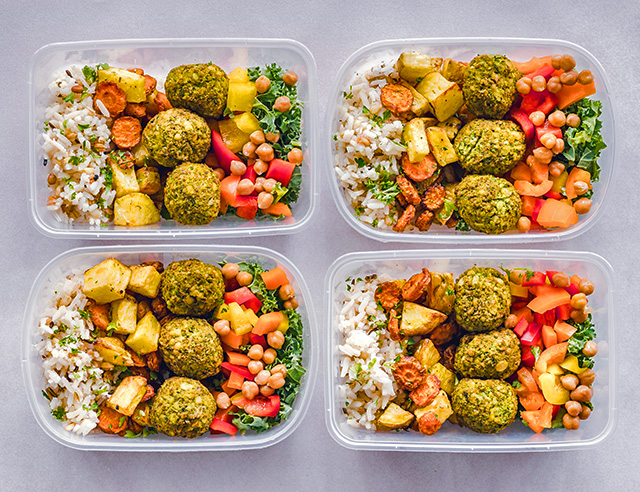The Vegan Diet is an eating pattern that excludes all animal products and by-products, such as meat, fish, dairy, eggs, and honey, and is followed by individuals who adopt veganism as a lifestyle choice. While it can be challenging to follow, especially in social situations or when traveling, a well-planned vegan diet can provide all the necessary nutrients for good health.
 Vegan Dishes
Vegan DishesWhy Follow A Vegan Diet?
People follow a vegan diet for a variety of reasons. For some, it is a moral or ethical choice to avoid using or consuming animal products and by-products in order to reduce animal suffering and exploitation. For others, it is a way to promote environmental sustainability by reducing the demand for resources and reducing greenhouse gas emissions associated with the animal agriculture industry. Additionally, many individuals choose a vegan diet for health reasons, as research has shown that a plant-based diet can help reduce the risk of chronic diseases such as heart disease, type 2 diabetes, and some types of cancer. Overall, the reasons for following a vegan diet can be diverse and personal, and individuals may choose to adopt this lifestyle for one or multiple reasons.
A Vegan Diet for Weight Loss
A vegan diet can be effective for weight loss, as it typically involves consuming high amounts of nutrient-dense, fiber-rich foods that are low in calories, such as fruits, vegetables, legumes, and whole grains. Additionally, vegan diets tend to be lower in saturated fat and higher in fiber compared to diets that include animal products, which can contribute to weight loss. However, it is important to note that not all vegan foods are inherently healthy or low in calories, and some vegan alternatives to animal products can be high in added sugars or fats. Ultimately, weight loss depends on a variety of factors, including calorie intake, physical activity, and individual metabolism. A well-planned, balanced vegan diet that meets individual nutrient needs can be a healthy and effective way to support weight loss goals.
What does the Vegan Diet typically involve?
The Vegan Diet typically involves consuming a variety of plant-based foods such as fruits, vegetables, legumes, nuts, seeds, and whole grains, which provide all the necessary nutrients required for good health. Vegans should also consume fortified foods or supplements to ensure they are meeting their daily requirements for nutrients like vitamin B12, calcium, and iron. Following a vegan lifestyle also extends beyond dietary choices, as it is a lifestyle that promotes avoiding the use of all animal products and by-products in clothing, cosmetics, and other areas of daily life.
What are the benefits of the Vegan Diet?
Research has shown that a well-planned vegan diet can provide a range of health benefits, including reduced risk of chronic diseases such as heart disease, type 2 diabetes, and some types of cancer. Vegan diets are typically high in fiber and low in saturated fat and cholesterol, which can promote weight loss and lower cholesterol levels. Additionally, the Vegan Diet can have positive effects on the environment and animal welfare, as it promotes sustainable and compassionate living.
What are the dangers of the Vegan Diet?
While a well-planned vegan diet can provide all the necessary nutrients, it can be challenging to meet the recommended daily intake of certain nutrients like vitamin B12, calcium, and iron, which are primarily found in animal products. Vegans may need to consume fortified foods or supplements to ensure they are meeting their daily requirements. Additionally, a poorly planned vegan diet that is high in processed foods and low in nutrient-dense foods like fruits and vegetables can lead to deficiencies in nutrients like protein, omega-3 fatty acids, and zinc. It is important for vegans to work with a registered dietitian or healthcare professional to ensure they are meeting their nutrient needs.
Related Pages
- Guide to Analyzing Diets
- Athletes Powered by Plants: Exploring Veganism in Sports
- The Vegan Cookbook for Athletes: 101 Recipes and 3 Meal Plans to Build Endurance and Strength.
- The Rise of Plant-Based Supplements: Trends and Market Insights
- The Skinny Bitch Diet is a vegan diet.
- Can you be Vegetarian and Healthy?
- More diets analyzed
- Weight Loss Home


 Current Events
Current Events